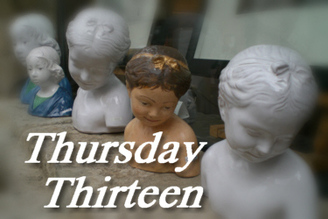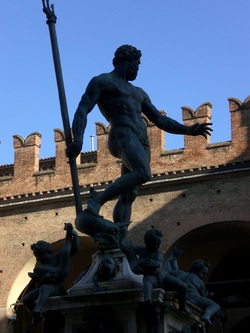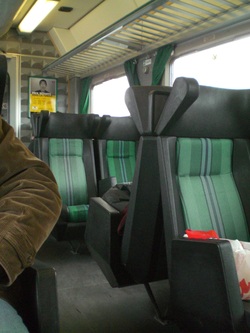13 Things I Like About My Novel:
Ask Me if I'm Happy
In short, she's someone a lot of women can identify with, I think.
Jacopo and Emily's history was originally explored at length in "Ask Me..." but it presented a problem: Since he was pursuing Emily, he was on his best behavior, and therefore was too appealing to the audience. Not to mention that the ten years between their first meeting and the start of the "Connections" section of the story was too much to put in the novel. So, I had to cut the original first section (called "Alternate Rialto") and trim the rest of the work down a bit. (I plan on polishing that section and adding a bit more to make it a proper novella on its own - hopefully soon.) In the end, I think Jacopo isn't entirely undeserving of sympathy from the reader, but only a little, little bit.
Letizia and Davide's story was a more prickly matter, in truth. She ran the risk of being little more than an attractive, empty shell because the reader gets most of their story from Davide, who is still suffering in a lot of ways. He's not exactly an impartial source, if you get me. While I don't want her to get too much sympathy or empathy from the audience, I wanted the reader to see why Davide would have been so hung up on her. In the end, it's actually more his issue than hers - and I think she does garner a tiny bit of sympathy once we get to know her a little better.
Bless 'em - they never really stand a chance, but I genuinely like them both. They only have the briefest of appearances in the story, but I hope they make a positive impression.
Needless to say, my students are amused that I adopted this title for my novel. If it sells well enough to merit a translation into Italian, however, it's doubtful I'll call it "Chiedimi se sono felice". I'll probably go with "Coincidenze" - the Italian word for "Connections".
And there you go.
And here we go.
As ever, I know why you're here.
And here you go:





 RSS Feed
RSS Feed
